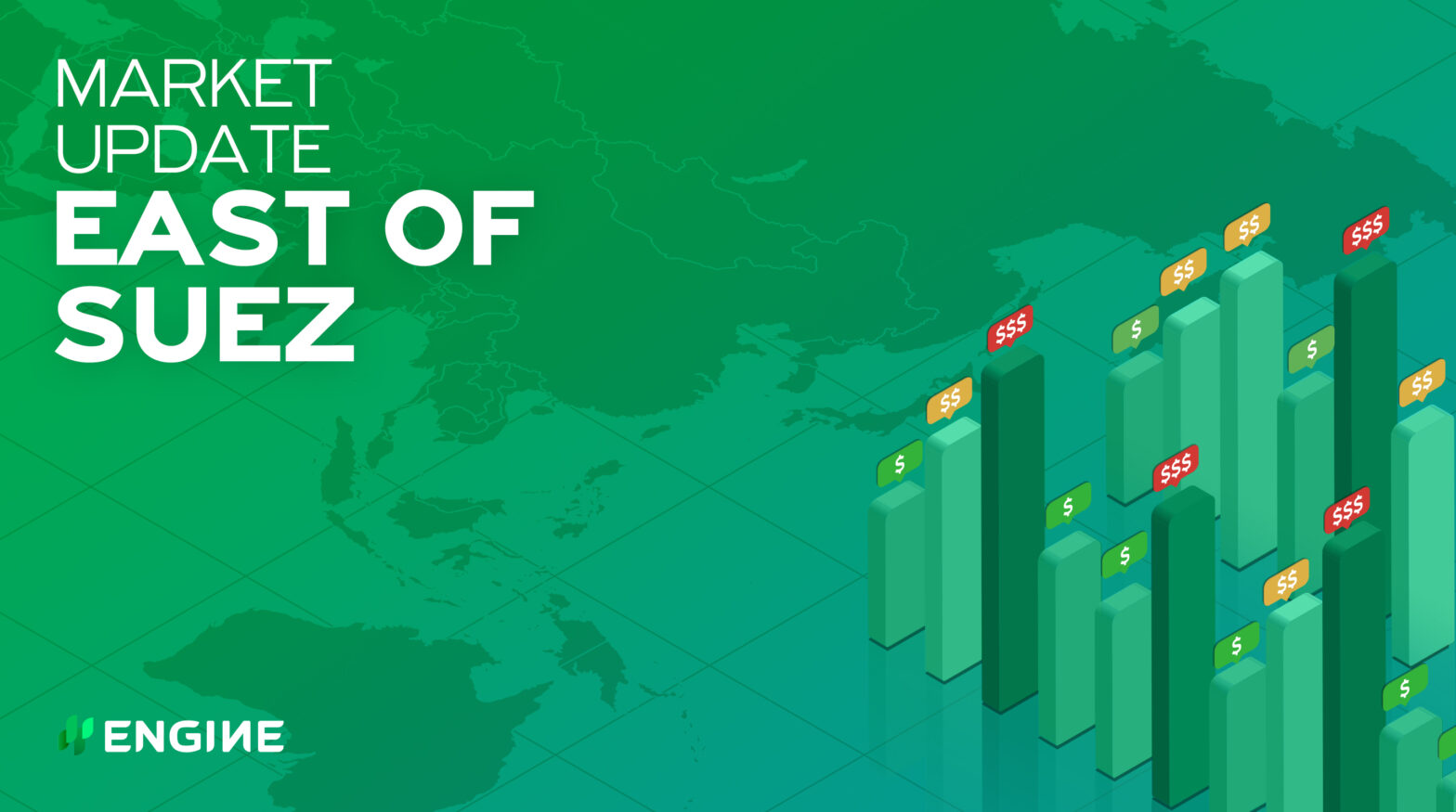East of Suez bunker fuel prices are mixed amid a slight rise in Brent crude, and bad weather is set to hamper bunker deliveries in South Korea.
Changes on the day to 16.00 SGT (08.00 GMT)
- VLSFO prices up in Singapore ($2/mt), and down in Fujairah ($6/mt) and Zhoushan ($2/mt)
- LSMGO prices up in Singapore and Fujairah ($5/mt), and down in Zhoushan ($5/mt)
- HSFO380 prices up in Zhoushan ($5/mt) and Singapore ($2/mt), and down in Fujairah ($4/mt)
Bad weather in South Korea today has led to intermittent bunker supply in the country’s southern ports, a source says. Wind gusts of up to 25 knots are forecast in Busan today, while Ulsan has 20-knot wind gusts forecast. The earliest delivery date for VLSFO is expected on 3 December, while there is around seven-day of lead time required for LSMGO and HSFO380.
In Singapore, ongoing terminal congestion for barge loadings after a Covid-19 outbreak last month has led to long lead times for bunker fuels. VLSFO supply is very tight with lead times of up to nine days, while LSMGO lead times are up to eight days. HSFO380 lead times remain up to 12 days, with fewer suppliers offering the grade than the low sulphur grades.
In Fujairah, lead times for VLSFO and LSMGO are up to eight days, while HSFO380 waiting times have improved slightly to five days.
In Zhoushan, VLSFO lead times are up to three days, though resupply has been held back after two suppliers’ cargoes failed meet the purity specifications, a source says. A supplier will receive a LSMGO cargo from 4 December at the earliest. HSFO380 lead times are up to six days.
Brent
After a sharp drop at the beginning of the week, front-month ICE Brent crude has recovered by $0.51/bbl in the past day, to $79.27/bbl at 16.00 SGT (08.00 GMT).
The US is about to announce a crude release from its Strategic Petroleum Reserves (SPR), a White House told Reuters. Soaring gasoline prices and inflation have weighed on President Biden’s polling numbers and prompted an outcry from Democrats.
The Biden administration has drummed up support from Japan and India for a coordinated release of strategic reserves. China is also looking to release some of its reserves.
A sizeable, combined release could trigger OPEC+ to delay its monthly incremental 400,000 b/d output increases, OPEC+ delegates have told S&P Global Platts. The group has been apprehensive of possible Covid-19 infection spikes when it has phased back the historic 10 million b/d oil cuts it made last year.
Last week, OPEC secretary general Mohammad Barkindo said global supply-demand balance will tilt into a surplus next month and doubled down on a cautious approach with OPEC+ supply restraint.
“OPEC+ is pushing back on this coordinated effort which is being led by the US to thwart surging energy costs as the global economic recovery stumbles to runaway inflation fears,” says OANDA analyst Ed Moya.
